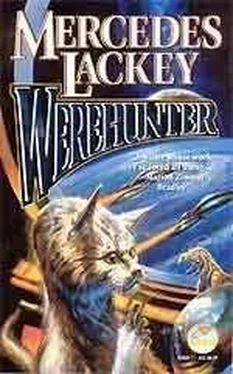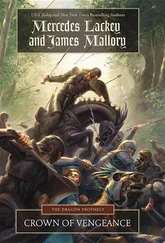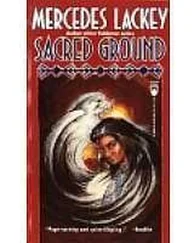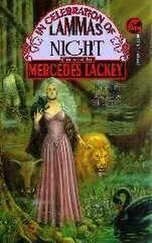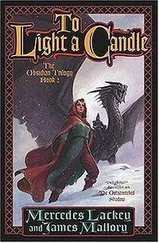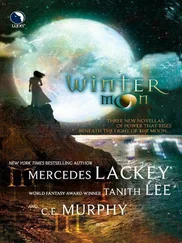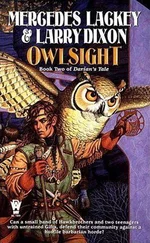Oh—back in “the old days” it was all called “science fiction.” There was no category for “fantasy,” and as for “hard s/f,” “sword and sorcery,” “urban fantasy,” “high fantasy,” “cyberpunk,” “horror,” “space-opera”—none of those categories existed. You’d find Clark Ashton Smith right next to E. E. “Doc” Smith, and Andre Norton and Fritz Leiber wrote gothic horror, high fantasy, and science fiction all without anyone wondering what to call it. Readers of imaginative literature read everything, and neither readers nor writers were compelled by marketing considerations to read or write in only a single category.
At any rate, many years later, my idol Andre Norton asked me for a story set in one of my favorite science-fiction worlds. Somehow I managed to tell Andre that I would be very happy to write a story. This is it. In fact, this is the longer version; she asked me to cut some, not because she didn’t like it the way it was, but because she was only allowed stories of 5,000 words or less; here it is as I originally wrote it.
It had been raining all day, a cold, dismal rain that penetrated through clothing and chilled the heart to numbness. Glenda trudged through it, sneakers soaked; beneath her cheap plastic raincoat her jeans were soggy to the knees. It was several hours past sunset now, and still raining, and the city streets were deserted by all but the most hardy, the most desperate, and the faded few with nothing to lose.
Glenda was numbered among those last. This morning she’d spent her last change getting a bus to the welfare office, only to be told that she hadn’t been a resident long enough to qualify for aid. That wasn’t true—but she couldn’t have known that. The supercilious clerk had taken in her age and inexperience at a glance, and assumed “student.” If he had begun processing her, he’d have been late for lunch. He guessed she wouldn’t know enough to contradict him, and he’d been right. And years of her aunt’s browbeating (“Isn’t one ‘no’ good enough for you?”) had drummed into her the lesson that there were no second chances. He’d gone off to his lunch date; she’d trudged back home in the rain. This afternoon she’d eaten the last packet of cheese and crackers and had made “soup” from the stolen packages of fast-food ketchup—there was nothing left in her larder that even resembled food. Hunger had been with her for so long now that the ache in her stomach had become as much a part of her as her hands or feet. There were three days left in the month; three days of shelter, then she’d be kicked out of her shoddy efficiency and into the street.
When her Social Security orphan’s benefits had run out when she’d turned eighteen, her aunt had “suggested” she find a job and support herself—elsewhere. The suggestion had come in the form of finding her belongings in boxes on the front porch with a letter to that effect on top of them.
So she’d tried, moving across town to this place, near the university; a marginal neighborhood surrounded by bad blocks on three sides. But there were no jobs if you had no experience—but how did you get experience without a job? The only experience she’d ever had was at shoveling snow, raking leaves, mowing and gardening; the only ways she could earn money for college, since her aunt had never let her apply for a job that would have been beyond walking distance of her house. Besides that, there were at least forty university students competing with her for every job that opened up anywhere around here. Her meager savings (meant, at one time, to pay for college tuition) were soon gone.
She rubbed the ring on her left hand, a gesture she was completely unaware of. That ring was all she had of the mother her aunt would never discuss—the woman her brother had married over her own strong disapproval. It was silver, and heavy; made in the shape of a crouching cat with tiny glints of topaz for eyes. Much as she treasured it, she would gladly have sold it—but she couldn’t get it off her finger, she’d worn it for so long.
She splashed through the puddles, peering listlessly out from under the hood of her raincoat. Her lank, mouse-brown hair straggled into her eyes as she squinted against the glare of headlights on rain-glazed pavement. Despair had driven her into the street; despair kept her here. It was easier to keep the tears and hysterics at bay out here, where the cold numbed mind as well as body, and the rain washed all her thoughts until they were thin and lifeless. She could see no way out of this trap—except maybe by killing herself.
But her body had other ideas. It wanted to survive, even if Glenda wasn’t sure she did.
A chill of fear trickled down her backbone like a drop of icy rain, driving all thoughts of suicide from her, as behind her she recognized the sounds of footsteps.
She didn’t have to turn around to know she was being followed, and by more than one. On a night like tonight, there was no one on the street but the fools and the hunters. She knew which she was.
It wasn’t much of an alley—a crack between buildings, scarcely wide enough for her to pass. They might not know it was there—even if they did, they couldn’t know what lay at the end of it. She did. She dodged inside, feeling her way along the narrow defile, until one of the two buildings gave way to a seven-foot privacy fence.
She came to the apparent dead-end, building on the right, a high board fence on the left, building in front. She listened, stretching her ears for sounds behind her, taut with fear. Nothing; they had either passed this place by, or hadn’t yet reached it.
Quickly, before they could find the entrance, she ran her hand along the boards of the fence, counting them from the dead-end. Four, five—when she touched the sixth one, she gave it a shove sideways, getting a handful of splinters for her pains. But the board moved, pivoting on the one nail that held it, and she squeezed through the gap into the yard beyond, pulling the board back in place behind her.
Just in time; echoing off the stone and brick of the alley were harsh young male voices. She leaned against the fence and shook from head to toe, clenching her teeth to keep them from chattering, as they searched the alley, found nothing, and finally (after hours, it seemed) went away.
“Well, you’ve got yourself in a fine mess,” she said dully. “Now what? You don’t dare leave, not yet—they might have left someone in the street, watching. Idiot! Home may not be much, but it’s dry, and there’s a bed. Fool, fool, fool! So now you get to spend the rest of the night in the back yard of a spookhouse. You’d just better hope the spook isn’t home.”
She peered through the dark at the shapeless bulk of the tri-story townhouse, relic of a previous century, hoping not to see any signs of life. The place had an uncanny reputation; even the gangs left it alone. People had vanished here—some of them important people, with good reasons to want to disappear, some who had been uninvited visitors. But the police had been over the house and grounds more than once, and never found anything. No bodies were buried in the back yard—the ground was as hard as cement under the inch-deep layer of soft sand that covered it. There was nothing at all in the yard but the sand and the rocks; the crazy woman that lived here told the police it was a “Zen garden.” But when Glenda had first peeked through the boards at the back yard, it didn’t look like any Zen garden she had ever read about. The sand wasn’t groomed into wave-patterns, and the rocks looked more like something out of a mini-Stonehenge than islands or mountain-peaks.
Читать дальше
